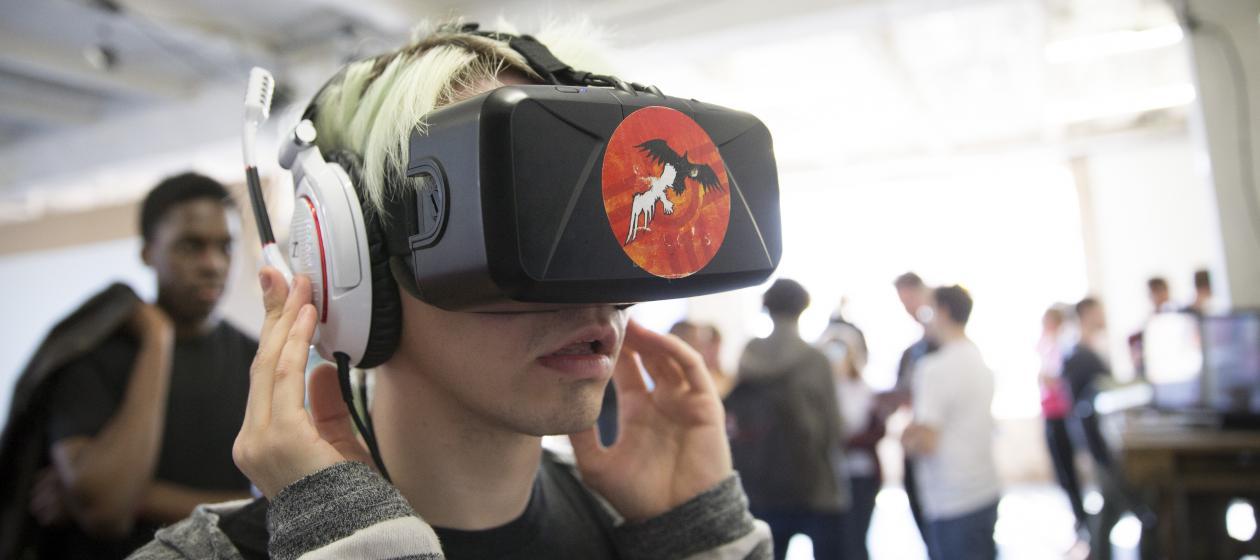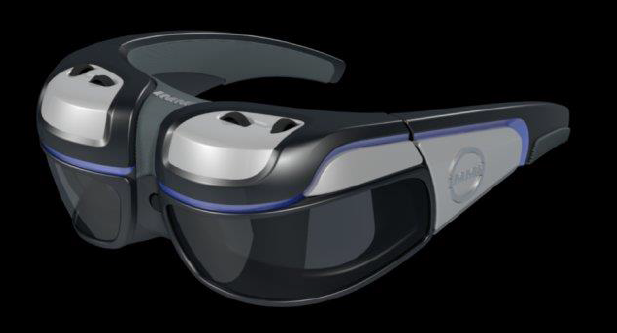Virtual reality, also known as VR, can be referred to as immersive multimedia or computer-stimulated life that can replicate an environment to simulate a physical presence in places in the real world or imagined worlds. Though VR artificially creates sensory experiences, including sight, hearing, touch, and smell, studies have shown that VR technology holds the potential to reorganize and adulterate a person’s memory, essentially blurring the lines between what’s real and what’s virtual.
According to VR media company, Hypergrid Business, VR headsets aren’t going to stop within the entertainment industry, where they’re used for gaming environments or a 360° movie, but are destined to permeate all facets of society, including government, business, education, the arts, and leisure. The fast-emerging VR industry is predicted to top $30 billion in revenue by 2020.

VR headsets are destined to permeate all facets of society. Image source: Getty Images.
Although many people experience motion sickness or discomfort from using current VR headsets for an extended period of time, once this technology is perfected, it has the potential to transform the world in many ways, similar to the Internet. VR headsets are built to take over people’s sensory controls by covering their eyes, ears, and tricking the brain into perceiving a virtual reality.
It is because of this that VR technology can create powerful new connections in the brain that generate long-term memories. By simultaneously activating new neural pathways in the conscious and subconscious brain, VR creators will wield the power to possibly trigger intense emotional responses in users, from pleasant to horrific, according to Hypergrid Business.

A headset prototype. Image source: IMMY.
When it comes to VR’s positive applications for virtual reality, they’re both exciting, and rather unlimited. VR simulations are already being created in controlled environments to help people conquer their fears of flying, heights, or of crowded places. These virtual worlds will also allow the elderly and bedridden to escape from their rooms for virtual trips to any place in the world. The reality of it is that these possibilities are truly amazing.
Of course, like all technologies, VR can be used for good or bad purposes. Some believe terrorist groups might use it to unleash brutality. In effect, a virtual war zone could recreate the agony and bloodshed of war, and the lasting traumatic effects on the human memory could be similar to the real-life experience.
When done properly, VR headsets can positively transform how we learn, play, work, and entertain ourselves. And though it’s being done already, it’s still in its infancy, and will have a substantial effect on our future way of life.
Source: Hypergrid Business
Advertisement
Learn more about Electronic Products Magazine





